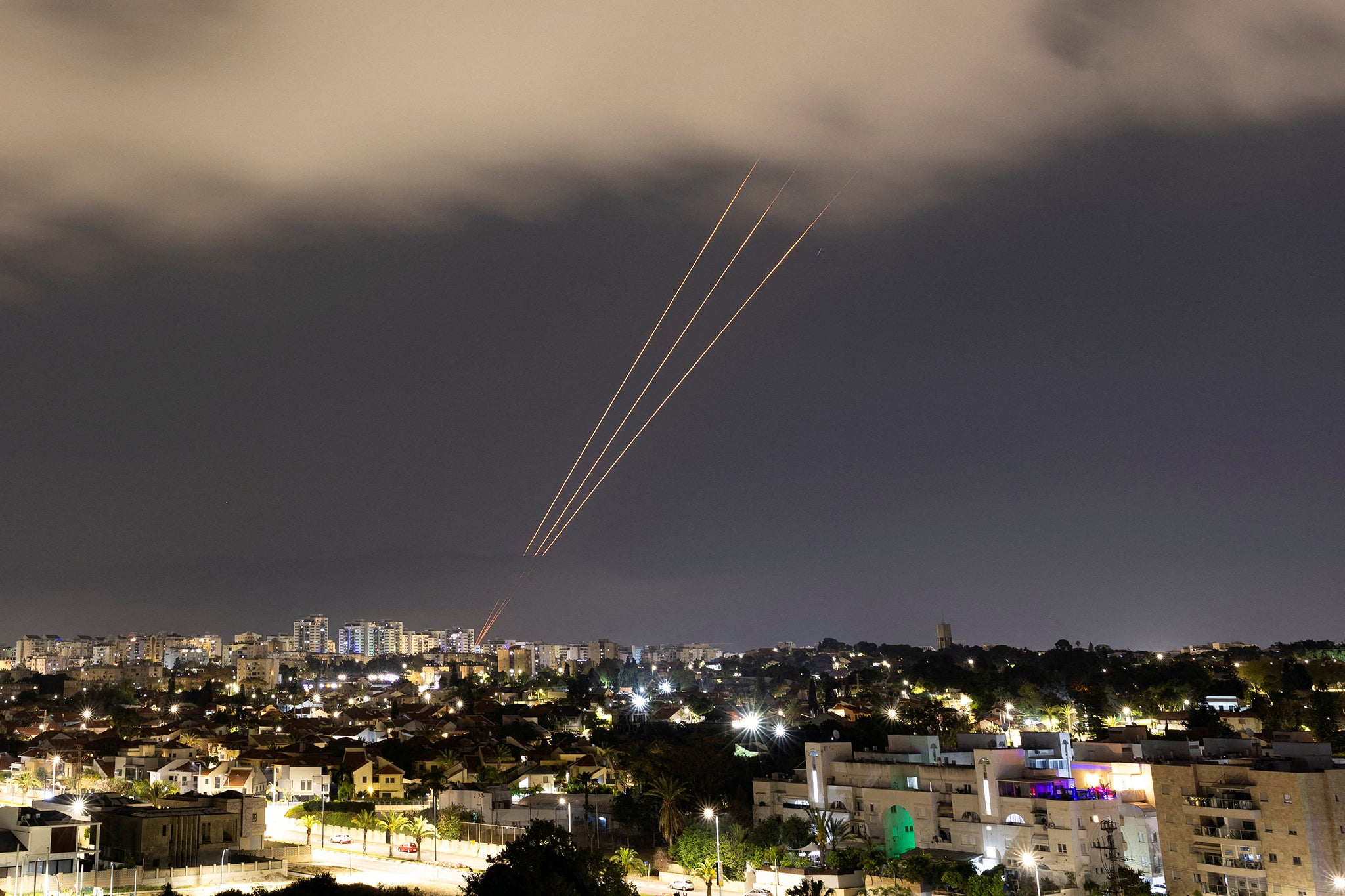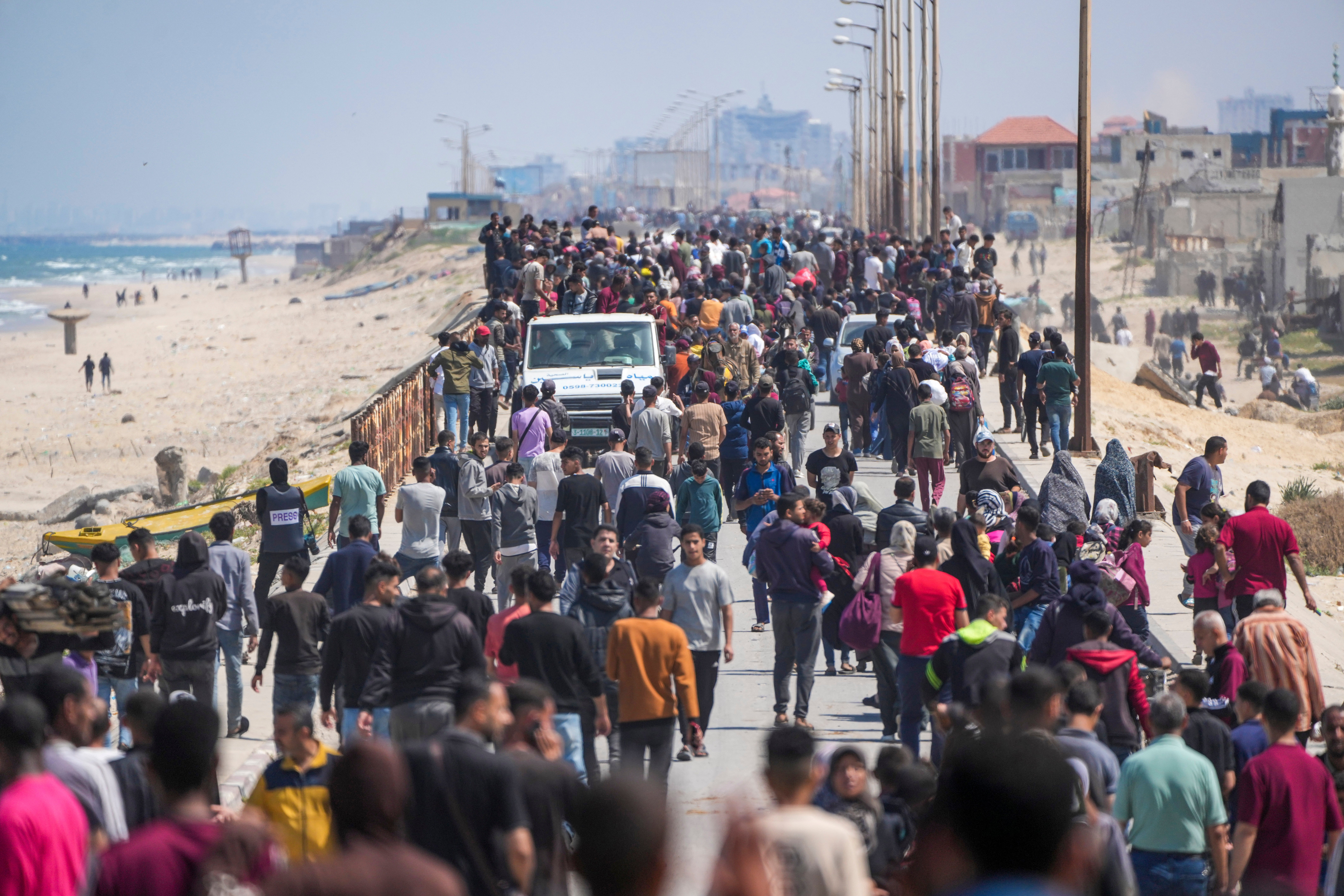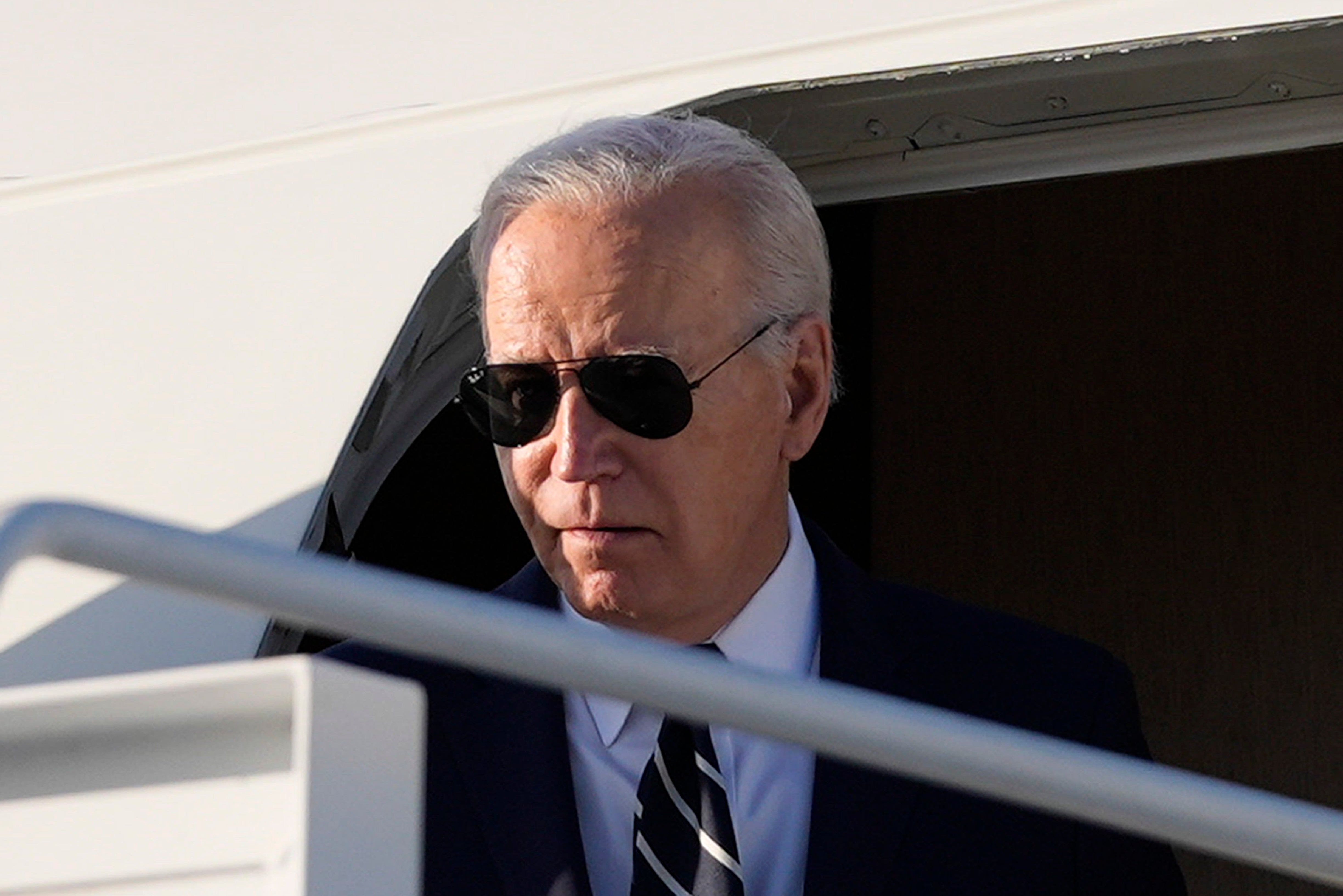Netanyahu is a ruthless opportunist who will do what’s best for him – that will drive Israel’s response to Iran
Having faced increasing pressure from Western allies over Israel’s conduct during the war in Gaza, the Israeli prime minister has had those same allies rush to help over Tehran’s attack, writes Kim Sengupta. He will not want to squander that goodwill


Iran has been good for Benjamin Netanyahu over his long and successful political career. Israel’s prime minister has never been backward in blaming the ayatollahs for a myriad of ills, and bemoaning that the West was not seeing the full danger from Tehran.
Netanyahu had gained political capital from portraying himself as “Mr Security”, protecting his country from Palestinian militants and their Iranian patrons. Now, just as Israel was getting isolated internationally and facing unprecedented levels of censure from allies over its continuing Gaza onslaught, the mass air strike by Iran has handed him a great advantage.
After warnings of drawing back support from a Joe Biden increasingly exasperated with Netanyahu, US support for Israel is now “ironclad”. Another hefty military package for Israel is likely to be passed by Congress with bipartisan support. Warplanes from Britain and France, both countries vocally critical of Israel over Gaza, shot down Iranian drones and missiles alongside the Americans.
The Jordanians, too, were part of the military action to protect Israel. And while there have been attacks on Arab social media on King Abdullah as a supposed Western and Zionist stooge, there have been no large-scale protests.
Saudi Arabia, the UAE and Bahrain have expressed deep concern over the armed escalation.
Israel has been assiduously courting the Sunni countries through the “Abraham Accords”. But they have repeatedly condemned Israel over Gaza as the death toll has climbed above 33,000 (according to the Palestinian health authority) and starvation spreads in a ruined land. The Gulf states have also been forging links with Shia Iran after decades of antipathy, and there have been public joint declarations of support for the beleaguered Palestinians from Tehran and Riyadh.
The question now is what Netanyahu will do with this geopolitical dividend? Nothing too hasty when it comes to Iran, it seems.

The final decision on what form retaliation takes will be made by three members of the war cabinet – the prime minister, defence minister Yoav Gallant and Benny Gantz, the former head of the Israeli military and leader of an opposition party who joined the government after the 7 October Hamas atrocity.
Gantz and Gadi Eisenkot, an observer in the cabinet from the same party, pressed for an immediate attack in the wake of Iran's drone and missile salvo, but this was firmly opposed by Netanyahu and Gallant, according to Israeli officials and reports in the Israeli media.
This is, perhaps, unsurprising. Despite his reputation as a war hawk, Netanyahu has shown himself to be a cautious pragmatist over the years, calling a halt, for example, to two previous Gaza wars against the wishes of the military. The fact that he has kept his hard-right coalition partners, Itamar Ben Gvir and Bezalel Smotrich, out of the inner war cabinet since the war began is another example of this.
An Israeli counterstrike, however, is inevitable. It could be on Iran’s allies – Hezbollah in Lebanon, Shia militias in Syria and Iraq, the Houthis in Yemen. It could be inside Iran with Islamic Revolutionary Guards Corps (IRGC) and other military facilities being hit – after all, Israel has carried out regular assassinations of scientists involved in the nuclear programme inside the country.
There is little doubt that Israel would like to use this opportunity to fulfil its long-held ambition to try and destroy Iran’s nuclear installations. It has not done so yet, because it would not be possible to achieve without US military support, and the Biden administration has said it will not play any part in an attack on Iran.
The Iranian air attack will have an impact on what happens next in Gaza.

Claims that Iran instigated the Hamas attack on Israel – something not proven – are being re-aired in Israel for domestic and foreign consumption, with the warning that not destroying Hamas will mean an Iranian force, under another name, is on the borders of Israel.
To destroy Hamas, Netanyahu has declared, the Gaza ground offensive must be carried into Rafah, where its fighters are now cornered. The US, Britain, other Western governments, the UN, and humanitarian organisations have asked Israel to desist, pointing to the potentially catastrophic consequences in an area where more than 1.5 million people have taken refuge from the carnage in the rest of the territory.
The Iranian assault gives Netanyahu a strong bargaining chip, Yaakov Amidror, a former Israeli national security advisor pointed out.
“Bibi [Netanyahu] has been given two good options. He can either go after Iran, saying we are justified in doing so. Or he can go to the Americans and say ‘look we’ll compromise and not escalate by not going after Iran, but in return we want full American support to destroy Hamas in Gaza, and this includes Rafah’,” said Amridor.
The scale of the Israeli response to Iran, and what it may spark on other fronts, from Hezbollah for example, may decide whether or not the Gaza mission is postponed.
Shlomo Brom, a former general and head of the Israeli military's strategic planning, said: “It’s not comfortable for us to have simultaneous, high-intensity wars in multiple theatres; choices have to be made in such a scenario.”

Biden pointed to the international effort in combating Iranian drones as a potent indicator by the West that they will guarantee Israel’s security. The White House said that the US president told the Israeli prime minister “you got a win, take the win“, after the joint defence against the Iranian attack, stressing that the US wouldn’t participate in Israeli counterattacks against Iran.
Giora Eiland, a former general and former head of Israel’s National Security Council, said that military action in Rafah would not be affected by a conflict at the Lebanese border, with Israel capable of overseeing two missions.
But the international action in support of Israel may open a path to Israel seeking a path, with the help of the West and regional powers, to end the Gaza war and end hostilities with Hezbollah.
Eiland did not think Netanyahu would pursue such a policy, saying: “He says he wants to achieve ‘total victory’ in Gaza and conquer Rafah, a process that could last two or three months. It’s clear Netanyahu has a different mindset and priorities.”
Netanyahu is an exemplary political strategist who has seen off multiple rivals over the decades. But he is now facing challenges which may bring him down – investigations into the security failures which led to the Hamas attack, and also separate criminal investigations which could see him end up in prison. He denies the charges.
Netanyahu’s ruthlessness, say critics, dictates that he needs wars. A change of leadership at such a perilous time, he keeps pointing out, will be hugely damaging for Israel.
The current crisis provides opportunity for the Israeli prime minister, but also potential pitfalls if wrong options are now taken and Israel loses control of the situation. In the longer term, there will inevitably be a “day after” the current confrontation with Iran and the Gaza war. And that is when the fate of Benjamin Netanyahu will be decided.






Join our commenting forum
Join thought-provoking conversations, follow other Independent readers and see their replies
Comments